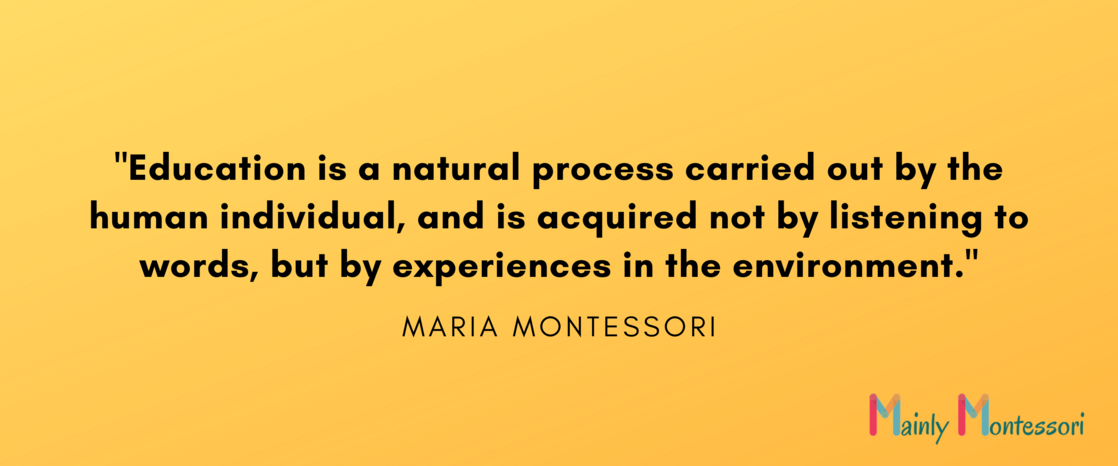Experience Before Explanation

Have you ever tried to teach a concept to your child, only to have them moan: “Why do I have to learn this?” Did you ever ask yourself that same question when you were in school?
The sad truth is that we often struggle to give our children an accurate answer because we don't really know why they have to learn what they do! Those of us who were educated in conventional schools were trained to believe that you study to get good grades, so you can get into a quality college, and eventually have a secure career. This mindset is alive and well in institutions of higher learning today. My husband, a university professor, reports that the most common question he gets from graduate students is: "Do we have to learn this for the test?"
I know you want to raise your child with a different mindset... I do too! So, how do we shift our children from victims of circumstance to empowered learners?
Make it Relevant, Practical, and Important (R.P.I.)
The R.P.I. approach is based on how guides present concepts to children in the Montessori elementary classroom: experience before explanation. It's NOT a quick fix, but like everything in Montessori, when done consistently it will shift your child's mindset (and your own). Additionally, if you start using R.P.I. when your child is young (around five is a good age to start), then when they're older they'll trust you more, and question your motives less.

Step #1: Relevant
If your child is pushing back on learning a skill, ask yourself: What experiences can I provide that will make that concept more meaningful or relevant in my child's life? You're not engaging with your child at this point. Think of this step as behind-the-scenes preparation.
Examples:
- Instituting an allowance or clothing budget;
- planning a road trip;
- asking a beloved relative to write the child a letter.
Step #2: Practical
Now it's time to transform the dreaded academic concept from an abstract idea your child has to learn to a concrete life skill your child chooses to embrace. Participate in the experiences together, so you can model using the concept. The Montessori three-stage approach to giving presentations works perfectly here:
- Model the new skill while your child watches (and helps if they feel capable).
- Invite your child to take over while you watch (and help if necessary).
- Step back and let your child take ownership of the process (offering respectful support if needed).
Examples:
- Together, plan the clothing budget of the younger siblings, and then your child plans theirs.
- Together, choose the landmarks you want to visit. Read and take notes on the first two. Then, let your child read and take notes on the remaining landmarks.
- Together, discuss what your child wants to reply to their relative, while you take notes. Then, your child can write the letter, and you can help with spelling if they have questions.
Step #3: Important
Find a quiet time to reflect with your child on the practical importance of the skillset they learned. Acknowledge their hard work and growth; refrain from saying "I told you so" or preaching about how adults knows best.
Examples:
- "Multiplication really came in handy for knowing how much your five shirts were going to cost you! You showed a lot of resourcefulness when you skip-counted to check your answer."
- "Your research skills were very helpful for streamlining our trip! I appreciate how you read the descriptions thoroughly and noted museum closing times."
- "Your careful handwriting will make it easy for grandma to read about your adventures! I noticed you included lots of descriptive adjectives and asked her very thoughtful questions."
Let's never forget that children want to learn; we just have to provide the necessary conditions that will help them thrive.
If you would like to move from confusion to confidence in your homeschool journey by learning and applying the Montessori principles, join the Montessori Homeschool Hub!
Categories
- 3-6 (8)
- 6-9 (26)
- 9-12 (8)
- Positive Discipline (2)
- Conscious Parenting (12)
- Montessori Curriculum (9)
- Preparation of the Adult (14)
- Preparation of the Environment (11)
- Montessori Principles (11)
- Montessori Homeschooling (20)
- Language Arts (3)
- Math (3)
- Geography (2)
- Biology (1)
- History (2)
- Practical Life (1)
- Montessori Stories (4)

1 comment
This is an excellent explanation of Montessori learning. I like that hands-on experience comes before explanations. Very informative and engaging.
Leave a comment